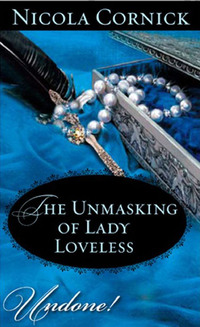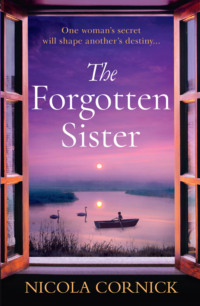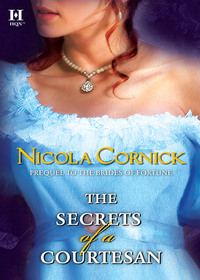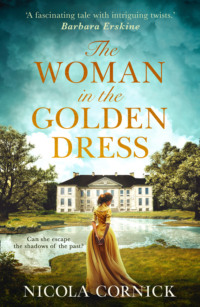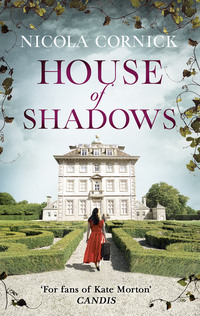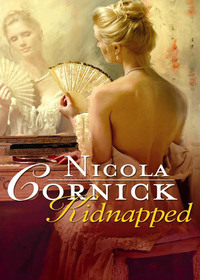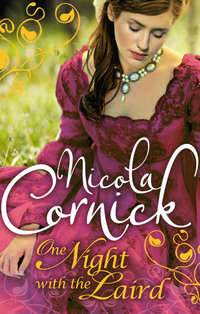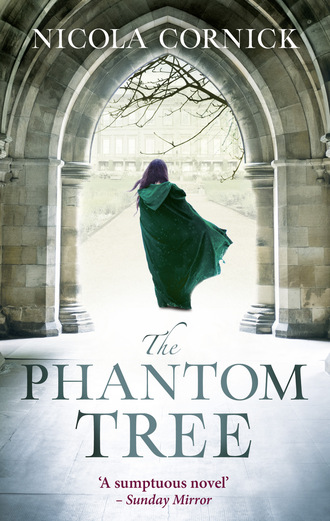
Полная версия
The Phantom Tree
*
Darrell came to me that night as I was tossing and turning in my sleep. Darrell had been my companion, from the earliest time. He was more than a daydream or an imaginary friend. I knew from the start that he was as real as I; that we could talk to each other in images and thoughts and ideas. Such things are natural to children. We do not question. I did not know who he was. I assumed we must be related in some way, such gifts so often connecting members of one family, but I had so many relatives and when I looked around at the sprawling network of my Seymour cousins not one of them felt right. He told me his name was Darrell and even though he knew I was called Mary he called me Cat because he said I was small and fierce. I loved him; it was simple and comfortable because I had always known him. He felt almost like another aspect of myself, closer than close
‘Cat. Are you there?’
The words came to me, as they had always done, as a whisper sliding into my mind, calling me. From earliest childhood it had happened like this, first in blocks of colours and images in my mind and then, as I grew older, in words and emotions.
‘Where are you?’
I ignored him, turning a shoulder as though he was in the room and I was shunning him. When I had been obliged to leave Grimsthorpe, I had called to him for comfort but he had not replied. I had been hurt, needing him and the comfort his presence brought. Yet sometimes it had been like this. He slipped back and forth through my life and sometimes when I needed him, he was gone. This was the first time he had spoken to me since I had left Lincolnshire and it was contrary of me to sulk when he was the one person who could make me feel better.
‘Cat?’
‘I am at Wolf Hall.’ I was short with him.
I felt his puzzlement before it cleared like rain clouds running from the sun.
‘Savernake? Why?’
‘They sent me away again.’ I was sick and feeling sorry for myself. I felt him laugh. Unforgivable.
‘Poor Cat.’
I sent him the mental equivalent of a rude gesture I’d seen the servants make and felt him laughing harder.
‘Such a lady.’
‘Go away.’
He sobered at once, sensing the genuine misery beneath my ill temper.
‘I’m sorry. Is it very bad?’
This time I sent a shrug, a hardy sort of a feeling. It was bravado. He knew I was homesick and lonely and unhappy. He could sense it. I could not keep him out even when I wanted to do so. Yet I also knew that not so many years before he too had been sent from home. I had sensed his loneliness and isolation. I had tried to get him to tell me about it—had he gone to another household for his education? It was the way life ran for the sons of noble households and sometimes the daughters too. He would tell me nothing about himself, though, not then, not ever. He was a mystery to me.
‘There’s the forest to explore. You love the forest.’
The thought felt eager and so like a boy, trying to offer solutions. If only he knew how much the forest had cost me already. Nevertheless, I had softened towards him. I could not help myself. He always made me feel better. There was comfort in his presence and I no longer felt so alone.
‘Yes. I suppose so.’
He sent me a boy’s hug, clumsy, affectionate. I smiled. The warmth of it soothed me, lulling me back into sleep.
‘Goodnight, Darrell.’
‘Goodnight, Cat.’ Goodnight, goodnight…
I slept.
Chapter 3

As soon as my fever had gone, Alison came back like nettle rash, irritating, never leaving me in peace. Of course I would not be ten years old for ever and Alison and I would not always be at daggers drawn, but just then it felt as though we would. For a little while we rattled around together like two cats trapped in a box, hissing, scratching each other, fighting on occasion, but over time we learned to live with each other. We kept a wary distance although life at Wolf Hall did not make it easy to avoid her.
We were up at five, whether it was summer or winter. In the summer this was no hardship for dawn had crept into the room long before, but in winter I clung to the warmth of my bed for as long as I could. Naturally, Alison called me lazy. In order to eat we had to work, and the work started early. There was milk to be churned, pottage to be boiled, flax to be spun and carded, rushes to be peeled to make lights and rooms to be swept clean. I preferred working in the kitchen in the winter. At least there was a fire, whereas the damp chill of the forest crept like a ghost through the cracks and crannies of the old house. There was no idle chatter to accompany our work. This might be a nobleman’s household, but whilst my cousin Edward Seymour lived the life of a courtier in London, we followed the older rules of life in the country.
I was lucky. I had time given to learning: languages, reading and needlework. So did Alison. The idea, I imagine, was that we should be settled creditably in marriage when the time came. Alison had no interest in book learning and neither did I really, but there were two things that kept me at my studies. The first was the knowledge that my mother had been a well-educated woman and I felt in some obscure way that I would be letting her down if I were to abandon my lessons. The second was more practical. I knew that time spent in study was time not spent washing, cleaning and pickling fruit, which I liked even less than book learning.
Going to the market in Marlborough was our treat. It was not permitted often, which made it all the more exciting. We had no need for the eggs, butter and cheese on sale there since we made our own, but Dame Margery would purchase meat and fish to augment our stocks and we would browse the stalls selling leather purses and belts, nails, knives, dead pigeons and coneys.
The day would start with the long cart ride into town, jolting over the rutted forest tracks. Dickon escorted us. He had fought alongside the late Sir John Seymour, Edward’s grandfather, many years ago. On bad days, when his bones pained him, he would grumble that all he was fit for now was acting as nursemaid to a parcel of women. On good days, when the sun shone and the birds sang, he would whistle tunelessly as he rode beside us.
I loved the market for the noise and colour, the gossip and drinking, the smells and the sense of a bigger world beyond the brick walls of Wolf Hall. It mattered not to me that the cobbles of Marlborough ran with blood from the carcasses that hung on the pegs on the stalls, or that the sweet sickly smell of them mingled with the scent of ale and burning until Alison pressed her pomander to her nose and threatened to retch. When Dame Margery took her eyes off us I would slip away between the booths. The shouts and calls of the traders crashed like waves above my head as I wriggled between chickens in their cages.
‘Good day, Lady Mary.’ It was the barber surgeon, pausing in the removal of a tooth to greet me.
‘Hold still,’ he instructed the groaning man in the chair. ‘Take some more spirit to dull the ache.’
The scent of cloves, the heat of a fire, the man screaming in pain: that was the world of Marlborough market as I remembered it. After a few hours, Dame Margery would round us up like sheep and take us back to the cart, where Dickon lounged with a flagon of ale, and we would jolt our way home. Dame Margery would be mellow and smell of meat pasties. I would doze as she regaled Alison with the gossip from the town.
One trip was different though. It was a hot summer day, too drowsy to do much except sleep. None of us wanted to exchange the cool shadows of the forest and the scented gardens of Wolf Hall for the rotting smells and flyblown stalls of the market. Dame Margery insisted, however. She was in a bad mood and was determined the rest of us would be unhappy too and so we took to the rutted roads, the journey almost shaking the cart apart, and arrived in town in the blazing heat of midday.
It was curiously quiet. There was no business for the barber surgeon, no business for anyone save the stalls selling ale. Dame Margery and Alison disappeared off to buy some gold and silver thread to embroider a shirt for Cousin Edward. He was due to visit Wolf Hall soon, a rare occurrence, and there was much excitement at the prospect. I wandered listlessly between the stalls where the vendors did not even trouble to glance my way. Some snored in the sun, others were drinking, everything was muted and still, and over the top of it all was the smell of the dung and the meat and the rot, strong enough to make my head spin.
I stumbled out of the crush of stalls and found myself a few paces down from the White Hart Inn. And there was Alison, poised in the tavern doorway, looking as though she were about to run inside. She was clad in a cloak of orange tawny, and her fair hair was dark with rain and I realised that I could feel the water on my face too. I was soaked to the skin and shivering, and the sky was dark grey and the wind was cold. I called her name and then I felt a touch on my arm. Her face swam into focus; she was shaking me.
‘Hush! What is the matter with you? You sound crazed!’
The sun was burning hot and the sweat was running down my face, splashing on my gown. I blinked it out of my eyes. There was no orange cloak and no rain. People were staring. Alison looked furious.
‘I swear you are a simpleton, Mary Seymour,’ she hissed, dragging me away, towards the cart.
‘I saw you,’ I said. ‘At the inn. In an orange cloak.’
‘She is taking another of her fevers.’ Dame Margery was on my other side and between them they half lifted, half pushed me up so that I rolled across the floor of the cart like an ungainly barrel. ‘Either that or she is bewitched.’
She made the sign of the cross.
‘More likely she is a fool than a witch,’ Alison said, but she was looking at me very thoughtfully indeed.
*
‘Darrell.’
I reached out to him that night, tired, lost and lonely, but there was no response. I knew he always came back. But I needed him now and I sent the thoughts out through the dark, but received nothing back but a faint, lost echo.
*
I was in my twelfth summer when Alison started to disappear. One night I woke to discover that she was missing. Assuming that she had merely gone to the privy, I rolled over and fell asleep almost immediately. It happened again a few days later, and then again, and this time I forced myself to stay awake to see how long she was gone. I lost track of time; the moonlight crept across the ceiling, the floorboards creaked and settled, the mice scratched and I fell asleep waiting. In the morning Alison was asleep in bed beside me and made no reference to her absence the night before.
How long we might have gone on in this vein, I do not know, for Alison never explained herself and I never asked. I was not even sure she knew that I knew. One night, though, about a month in, the pretence unravelled. My curiosity had got the better of sleep at last and when I heard the sound of murmured voices outside I slipped out of bed and tiptoed across to the window.
It was high summer and the casement was wide, letting in soft air and starlight. Down on the terrace I could see two shadows merging. I heard a sigh, and laughter, quickly hushed. One figure broke away then and the other disappeared into the darkness of the garden. A door closed softly below; the dogs did not bark. I made a dash for the bed, bumping into the table and knocking the china jug to the floor in the process. It fell with a clatter that broke like thunder through the quiet house and rolled across the floorboards to smash against the wall. The dogs began barking then.
The chamber door flew open. Alison stood there, fear in her eyes. She cast a hunted look over her shoulder for behind her there was a babble of voices and the sound of footsteps. She was about to be discovered.
‘Quick!’ I hissed. ‘Into the bed!’
She leaped fully clothed and shod under the covers and pulled them up to her chin. When Dame Margery appeared, candle in hand, grey braids trailing, Alison was doing a creditable imitation of someone who had just been woken from sleep.
‘What in the name of all that is holy is going on here?’ Dame Margery looked like a terrier, brindled and growling.
I dropped a submissive curtsey. ‘Your pardon, Dame Margery. I knocked over the jug on my way back from the privy.’
Dame Margery looked suspiciously from the pieces of broken china in my hand to the dark corners of the room, as though she expected to see some devil lurking. Again I saw her making the sign of the cross in my direction, a hasty and furtive guard against witchcraft.
I bit my tongue hard. I was no witch; I did not choose my gift and wanted none of it. It scared and angered me that she labelled me so. But my position at Wolf Hall was precarious beneath the veneer of my fame and status. I could not afford to anger Dame Margery.
‘You may tidy it in the morning.’ She was brusque with me. ‘Back to bed now, and try not to cause any more trouble.’
The door closed. The light was doused. I climbed back into bed.
‘Why did you do that?’ Alison’s hissed whisper reached me out of the dark. ‘Why did you help me?’ She sounded annoyed rather than grateful.
I decided to take it literally. ‘If I had not you would have been found out.’
She was silent for a moment. I had not answered her question and I could feel her puzzlement.
‘Don’t tell anyone or you’ll be sorry,’ she threatened.
I turned a shoulder and drew the covers up over me. I had already proved that I would not tell. There was no need for further words.
I heard her slipping off her shoes and the rustle of clothes before the mattress shifted and she lay back down. A few minutes passed.
‘Did you see him?’ she asked suddenly.
‘No,’ I said.
She gave a sigh and a little wriggle. ‘He’s lovely.’ Her voice had softened. ‘Oh, Mary, he is so handsome! I love him.’ She rolled over so that she was facing me. ‘Shall I tell you about him? Abut what it is like when I am with him?’ Her voice was eager. I knew she wanted to talk but I did not want to hear it.
‘No!’ I said. ‘Tell me nothing. That way I can’t be made to tell anyone else.’
There was silence. I could feel her withdrawing from me. It had been our one chance of friendship and I had rejected it. She said nothing else but I felt her coldness.
Despite that, she was all glowing and bright through those hot summer nights, slipping off to meet her lover more blatantly now that she knew I knew and would say nothing. In the daytime she was dreamy and softer than she had ever been, almost kind. She looked buxom and ripe and she seemed always on the point of bursting into flower. I saw the way that the men looked at her and she saw it too and liked it. I was twelve years old, skinny and small and quiet. No one looked at me and I made sure it stayed that way. Not for me midnight trysts in the garden or a tumble behind the orchard wall. I thought Alison foolish beyond measure.
Disaster came to her very quickly. One day I was called away from my duties in the stillroom and into the parlour. The page was voluble and excited, the courtyard swarming with men and horses.
‘Sir Edward is here!’ He told me as I followed him, wiping my hands on my apron in a hasty attempt to rub off the smell of oil. ‘He wants to see you at once.’
As the parlour door swung shut behind me, I saw that there were four people in the room. Dame Margery was there, her long face sunk into grim lines I had not seen before. Beside her sat Liz Aiglonby. I looked to Liz for clues but for once her expression gave me nothing.
The two men were unknown to me. The elder was large, careless in his dress, with a high complexion and, I judged, a short temper. Already he was tapping his fingers impatiently. I did not care for the look of him.
The other was indeed my cousin Edward Seymour. Throughout my time at Wolf Hall, Edward had been an elusive presence, often rumoured to be about to visit us, but never appearing. Our house of misfits and orphans had been beneath his notice. But now he was here.
My cousin Edward had gloss. He had been brought up with the boy King Edward, our cousin, and it showed. He was only a young man but confidence cloaked him. He was handsome too and, as I entered the room, he stood and he took my hand and kissed it, courtly fashion.
‘Lady Mary. Cousin. I am happy to meet you.’
I could have pointed out to him that he appeared to have been in no great hurry to do so but I did not, bobbing a curtsey, which gained a nod of approval from Liz.
‘Sit. Please.’ He led me to a chair that was placed directly before the circle of inquisitors. ‘Dame Margery and Mistress Aiglonby are known to you, of course.’ His smile was charming. ‘This is our uncle Sir Henry Seymour.’
‘Lady Mary.’ Sir Henry inclined his head with a wintry smile. I could tell at once that he thought me of no account, being a woman and a plain one at that, but because of my name and our kinship he was prepared to show courtesy at least. There were men who said that Henry Seymour lacked the ambition of his brothers, my late father and uncle, but since they had lost their heads for it whilst he had garnered lands and offices, he was self-evidently the wisest of the three. He was certainly too grand and too important to have visited Wolf Hall during my time there. Now I felt his shrewd gaze assessing me.
‘An ill-favoured maid to be the child of so handsome a man and so gracious a lady,’ he said now.
I saw Liz poker up with outrage but I felt nothing but amusement. Nothing could please me more than to be considered undistinguished. Notoriety had served my parents ill. Invisibility would suit me best.
‘Mary will grow to be a beauty,’ Liz said stoutly, although she sounded less than certain.
I settled myself in the chair, folding my hands demurely in my lap. Dame Margery’s frown deepened; she knew my docility was assumed and it was another reason she disliked me. She thought me sly when I was simply careful.
‘Lady Mary.’ My cousin Edward sat forward, pleasantries over. ‘You share a bedchamber with Mistress Banestre?’
I nodded. His gaze grew sharper. ‘Does she ever bring anyone else to your chamber?’
‘A man,’ Sir Henry snapped. ‘Has she brought men into her bed?’
I saw Edward shoot him a look of irritation. ‘Gently, sir. Mary is but a little maid—’
‘No,’ I said bluntly, interrupting, ‘she has not.’
‘Have you ever seen her with a man?’ Edward asked.
I thought of the night when I had seen Alison and her lover kissing on the terrace. I had seen nothing but shadows, no man.
‘No,’ I said.
Liz sat back, the tension in her shoulders slackening. ‘See?’ she said. It was directed more at Dame Margery than the men. ‘She knows nothing of it.’
‘Does Mistress Banestre ever slip out at night?’ Sir Henry demanded. His colour was vivid now, like spilt red wine. He was drumming the fingers of one hand on his knee.
I hesitated.
‘She does!’ Sir Henry said triumphantly. ‘I knew it!’
‘Since she is four months gone with child,’ Edward said with exasperation, ‘we all know she must have done.’
Liz was watching me and saw the shock reflected in my eyes. ‘You did not know, did you, Mary?’ she said gently. ‘You did not know that Alison was enceinte?’
‘No,’ I said for a third time. I hesitated again. I knew little of pregnancy and childbirth but I was not completely ignorant. I had grown up in the country. I had seen farm animals mating and knew that people did it too. I had also been with the others to the Midsummer Fair, where maids and men would slip away with much giggling and touching and disappear into the bushes together.
‘Has she been sick of a morning?’ Dame Margery asked sharply.
‘No,’ I said, once again. ‘Not that I am aware.’
Dame Margery gave a snort of disgust. ‘It seems you have seen and heard nothing! All manner of things might have occurred but you would be in ignorance of them.’
‘Which is precisely as it should be,’ Liz said sharply.
‘Has Mistress Banestre told you the name of her lover?’ Edward picked up the questioning again. ‘Has she mentioned any man’s name to you?’
I realised then that Alison must have refused to disclose the name of the child’s father to them. She had told me that he was handsome, and that she was in love with him, but she had never told me his name.
‘No,’ I said.
‘You are a woman of few words, Cousin,’ Edward teased me. ‘Or perhaps you are a loyal friend.’
‘Alison and Mary are not friends,’ Dame Margery said, as though it gave her pleasure.
‘Then she knows nothing,’ Liz said. ‘If it please you, sir—’ she glanced at Edward ‘—she should be allowed to go.’
Edward nodded. ‘I will see you at dinner, Coz,’ he said. ‘We have much to talk about.’
But it was apparent that both he and Sir Henry were far too busy and important to stay to dinner for less than an hour later they were gone in a spatter of summer dust and clatter of hooves, their entourage with them, and silence settled on Wolf Hall once more.
I found Alison up in our chamber, dragging clothes from a chest and throwing them furiously into a smaller travelling box. She did not look so radiant now. Her face was puffy and tearstained.
‘They’re sending me away,’ she said briefly, answering my unspoken question. ‘I have to go to my aunt in Kent until after the baby is born.’
‘I didn’t know you had an aunt in Kent,’ I said.
‘I don’t.’ She shrugged. ‘I made her up. I was damned if they were going to tell me what to do. I’ll go where I please.’
It sounded like bravado to me but I held my tongue. Alison in this mood was brittle and dangerous. I sat down on the edge of the bed and watched her take out her anger and frustration on her smocks and petticoats. ‘That disgusting old man—’ One of the smocks ripped in her busy hands. ‘Sir Henry. He wanted to beat the name of my baby’s father from me. He said I would scream it soon enough if they stripped me and whipped my back.’
I winced. I had sensed that streak of prurient cruelty in Sir Henry.
‘Why will you not tell them?’ I asked.
For a brief second she looked utterly desolate. ‘I cannot. You don’t understand. He…’ She hesitated. ‘I promised him I would not.’
‘Is he already wed?’ I asked. It seemed the only reasonable explanation otherwise Cousin Edward would surely find the man and oblige him to marry Alison.
‘No, he is not,’ she said.
‘Then…’ I waited. What barrier could there be then to marriage? It did not make sense to me. What sort of man, for that matter, would take his pleasure and then abandon Alison to the consequence?
‘He is a great man.’ She spoke in a rush. ‘A lord. He cannot marry me. I am not—’ She stopped but it was as though she had said the words aloud.
I am not good enough.
Her defiance returned: ‘It is no matter. I can manage on my own.’
I said nothing. Could she? Alison was clever but she was a gently bred girl. It seemed unthinkable that she could survive alone. However, I had learned not to voice such opinions. They never seemed to find favour even if they were often true.
Alison finished packing the box and slammed down the lid, drawing the buckles on the straps tight. Then she stood looking at me a shade awkwardly.
‘I don’t know if I’ll see you again,’ she said.
‘No,’ I agreed.
She frowned. ‘You’re a strange one, Mary Seymour,’ she blurted out. ‘Do you care for no one and nobody?’
I was taken aback. I’d never really thought about it. I cared for Liz. She had always been a part of my life and it felt impossible not to love her. I cared for Darrell too, with a sweet sharp pang of possessive pride because he was my secret. Yet beyond that I formed no real friendships and made no ties. Because I was rootless somehow I had understood instinctively that it was safer to remain so against the time when everything would change again.





